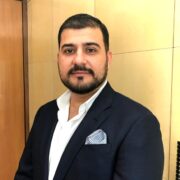

Ans. To study MBBS abroad, all Indian students must have cleared their 10+2 in Physics, Chemistry, Biology with a minimum aggregate of 50% and clear the NEET examination (2019 onwards). Other requirements will vary based on country on country and has to be researched upon beforehand.
Ans. Since the Indian government has little number of seats as compared to the applicants, applying to low-cost MCI approved colleges abroad is generally seen as a better option that spending high on private colleges in India.
Ans. The first step is to always research and select the colleges and countries one wishes to apply to. Based on the same, applicants can look up and enlist scholarships offered in that region and apply accordingly. Most scholarships will be based on merit.
Ans. While studying entirely for free and absolutely no expense is impossible, there are different levels of scholarships that cover tuition fees, as well as living cost, or some that have a set amount of money irrespective of where you apply that can be used for expenditure.
Ans. Most colleges abroad will be much more affordable than Indian private colleges or NRI seats in exchange for high-quality education. It will also expose the student to an international level and broaden his or her mindset, while also shaping a reputable, professional personality.
Ans. The process of admission varies from country to country. A 10+2 in Physics, Chemistry, Biology along with clearing NEET is mandatory, after which the applicant can look into the pre-requisites of their desired university and apply accordingly. Once selected, the university will look into getting you a student visa.
Ans. 2019 onwards, NEET has been made a mandatory pre-requisite and hence, there is no scope of studying MBBS abroad without clearing NEET first. The most someone can do is pursue a one-year long Pre-med course only.
Ans. 2019 onwards, NEET has been made a mandatory pre-requisite and hence, there is no scope of studying MBBS abroad without clearing NEET first. The most someone can do is pursue a one-year long Pre-med course only.
Ans. Excluding living costs, in most cases, students can expect to spend around 15-20 lakhs for high-quality medical education in foreign countries.
Ans. After MBBS, the next step to pursue is MD. Post-graduate studies will also have similar application process to undergraduate, where the applicant sends required documents, takes an exam (if required), and the institute looks into the Visa once selected.
Ans. MBBS in India is one of the best and most sought-after programmes. It can also be very inexpensive if a student is granted a government funded seat. However, private colleges and NRI seats can be much more expensive, and colleges abroad can provide better alternatives for lower prices.
Ans. Since 2019, NEET has been made mandatory for all, even if students wish to study MBBS abroad.
Ans. Yes, National Eligibility cum Entrance Test has been made essential for all medical students, irrespective of whether a student opts for studying in India or abroad.
Ans. As long as a student applies to an internationally recognized university that offers quality education at low costs, investing in it is always worth it. However, India also offers quality education at low costs under a government funded seat and is not available to many. In either case, quality education is worth the time, effort and money.
Ans. The choice of country and university depends on several factors such as budget, eligibility criteria and, language and cultural barriers. Some of the most popular choices are USA and Britain, but can be expensive. Other common alternatives are China, Russia and Poland.
Ans. Most colleges abroad will be much more affordable than Indian private colleges or NRI seats in exchange for high-quality education. It will also expose the student to an international level and broaden his or her mindset, while also shaping a reputable, professional personality.
Ans. As long as an applicant fulfils the eligibility criteria of a given university, he/she has the option to study MBBS abroad. Generally, a 10+2 certificate in Physics, Chemistry, Biology along with the NEET entrance exam is mandatory by all esteemed universities. However, studying MBBS abroad is not a priority for Indian students while they can grasp a government-funded seat in India.
Ans. Many MBBS graduates apply for IAS every year. In case someone owns a degree of a foreign national, an applicant must also get an equivalent certificate from the Association of Indian Universities. A copy of the degree is attested by High Commission of India to apply for IAS after studying from abroad.
Ans. No. 2019 onwards, NEET has been made a mandatory pre-requisite and hence, there is no scope of studying MBBS abroad without clearing NEET first. The most someone can do is pursue a one-year long Pre-med course only.
Ans. In India, students can get a loan for up to 20 lakhs when applying for foreign universities under the CGFEL scheme. Loans over 7.5 lakhs most commonly require a collateral.
Ans. You cannot. NEET has been made a pre-requisite for all Indian students, whether they apply for colleges in India or abroad. Students can, however, apply for one year long pre-med course without clearing NEET.
Ans. Although additional exams may not be compulsory in most cases, all applicants have to fulfil the basic eligibility criteria and have an educational background to study MBBS, both in India and abroad.
Ans. Moving out of a country and dwelling in a new atmosphere is often an unforgettable experience. Studying MBBS, especially in technologically advanced countries, can expose you unexplored realms and change a person forever.
Ans. Every year, an approximate of 7000 students from India apply to MBBS in foreign countries, most common being China and Russia.
Ans. About 75% of MBBS programmes abroad last for an average of 6 years. The number may slightly fluctuate based on the choice of country.
Ans. Studying MBBS abroad can cost anywhere between 15-60 lakhs, excluding living costs.
Ans. A list of documents is required such as passports, birth certificate, 10th and 12th certificates, admission letter, and other things. A bank DD of Rs 2400 needs to be submitted, while the application form and all the details can be found on the MCI website.
Ans. The first step is to always research and select the colleges and countries one wishes to apply to. Based on the same, applicants can look up and enlist scholarships offered in that region and apply accordingly. Most scholarships will be based on merit.
Ans. Studying abroad can be funded by multiple sources such as the government, non-profit organizations, businesses, loans or grants. Each country will have its own set of funding which can be conveniently found on the internet. The key is to prove that your skill set is worth the funding.
Ans. Most scholarships are based on merit, which will follow a structured application process, and so will admissions. Applying to as many scholarships and colleges is a good bet to ensure going abroad to study MBBS.
Ans. Fulfilling the eligibility criteria of a university, applying for the course and clearing NEET are the core aspects of going abroad to study MBBS. The rest of the formalities are conveniently taken care of after being accepted into an esteemed university.
Ans. The most important step of planning is research – looking into top colleges, countries, eligibility criteria, among many other things. Finances should be sorted and calculated before applying as well, or looking for sources of funding.
Ans. After having chosen universities and countries to apply to, the admission process should be researched and applied to subsequently. Applicants from India also need to compulsorily clear NEET. Once accepted, a student visa is conveniently issued.
Ans. You cannot. NEET has been made a pre-requisite for all Indian students, whether they apply for colleges in India or abroad. Students can, however, apply for one year long pre-med course without clearing NEET.
Ans. When having accepted at a public university in France, students have to pay very little to not tuition fees. However, there are still other livings costs that need to be taken care of, and thus studying MBBS in France cannot be entirely free, while it can be sponsored.
Ans. Germany’s public universities are low-cost but not entirely free. The only way is to either be funded by scholarships or organisations that cover a net amount of throughout the duration of the MBBS.
Ans. Having consistent and great merit is a pre-requisite to winning scholarships, while applicants need to apply online for their respective countries of their choice. After having been selected, the university then takes over and looks at all the other formalities.
Ans. After having chosen universities and countries to apply to, the admission process should be researched and applied to subsequently. Applicants from India also need to compulsorily clear NEET. Once accepted, a student visa is conveniently issued.
Ans. 2019 onwards, NEET has been made a mandatory pre-requisite and hence, there is no scope of studying MBBS abroad without clearing NEET first. The most someone can do is pursue a one-year long Pre-med course only.
Ans. An MBBS post-graduate course is called an MD. Post-graduate studies will also have similar application process to undergraduate, where the applicant sends required documents, takes an exam (if required), and the institute looks into the Visa once selected.
Ans. Tests may or may not be a pre-requisite to studying MBBS in foreign countries, where NEET is mandatory for all. Some countries grant admissions on merit basis, while countries like USA will conduct exams for their admissions.
Ans. To study MBBS abroad, all Indian students must have cleared their 10+2 in Physics, Chemistry, Biology with a minimum aggregate of 50% and clear the NEET examination (2019 onwards). Other requirements will vary based on country on country and has to be researched upon beforehand
Ans. After MBBS, the next step to pursue is MD. Post-graduate studies will also have similar application process to undergraduate, where the applicant sends required documents, takes an exam (if required), and the institute looks into the Visa once selected.
Ans. After MBBS, students need to specialize in either surgery or medicine. This post-graduate specialization is called MD, which follows a similar application process to an undergraduate. Exams may or may not be required based on the country opted for.
Ans. The equipment used in studying MBBS will follow as per its government rules. In most cases, plastic dummies are provided as well as other equipment, based on education needs across the world.
Ans. Most colleges abroad will be much more affordable than Indian private colleges or NRI seats in exchange for high-quality education. It will also expose the student to an international level and broaden his or her mindset, while also shaping a reputable, professional personality.
Ans. Since the Indian government has little number of seats as compared to the applicants, applying to low-cost MCI approved colleges abroad is generally seen as a better option that spending high on private colleges in India.
Ans. Yes, as of 2019 onwards, NEET has been made compulsory for all students of medicine, whether they apply within the country or outside it.
Ans. Yes, NEET is a compulsory and inevitable part of studying medicine for Indian students presently, and without clearing NEET, students will not be eligible for MBBS abroad as well.
Ans. Since 2019, NEET has been made mandatory for all, even if students wish to study MBBS abroad.
Ans. After MBBS, medical students are expected to specialize in either medicine or surgery in a course called MD. While in some countries, MD is considered the first professional degree (US), in others it is an equivalent to PhD (UK).
Ans. When studying abroad, the student is exposed to a different culture and a way of living, thereby broadening mindset. It also provides an opportunity to expand and experiment with different technology, and may change a person forever.
Ans. Pursuing MBBS in foreign nations is getting all the more common, where people are being introduced to its scope and is now very widely accepted across the world. A student gets the opportunity of an internationally recognized degree.
Ans. Excluding living costs, in most cases, students can expect to spend around 15-20 lakhs for high-quality medical education in foreign countries.
Ans. The living costs will depend on how developed a country is, where the tuition fee can generally range anywhere between 15-20 lakhs.
Ans. Students must have cleared 10+2 in Physics, Chemistry and Biology, as well as NEET before applying. The application process may or may not involve extra tests, including English Proficiency. After acceptance, the university takes over all matters.
Ans. It is absolutely essential to maintain merit in your past years, since it becomes the basis of most scholarships and admissions. Like any other subject, to have an opportunity to study MBBS abroad, one needs to study, research and prepare vigorously.
Ans. The best country to study MBBS is a subjective matter. While most love India itself, some of the most preferred foreign countries include USA, China, Russia, Britain, Poland, etc.
Ans. While MBBS abroad can seem like a dream to many, a factor to be incredibly careful about is that 75% of the students fail to clear MCI screening tests, deeming their degrees invalid to practice freely in India.
I hope you may like the following.
5 Key Advantages of Studying MBBS Abroad for Indian Students


He is an entrepreneur, a mentor, career counselor, an author and so much more. Alumni of reputed institutes like IIM-Bangalore, Delhi Technical University and among the top 20 of his batch, Mr. Vivek Gupta has almost 20 years of experience.

Satyam is an alumnus of IIM Bangalore ( 2005) and IIT Delhi 2003. He was first runner up at Lead India , an initiative by Times of India to find future impact leaders of India. After a 4 year stint with American Express, Satyam joined Michael and Susal Dell Foundation to take his passion to profession.

Having graduated from Kurukshetra University with a bachelor's degree, she is well-versed in digital marketing. Over the past two years, she has been actively handling and managing various academic responsibilities.

Sameer Mahandru is an alumnus of IIM Bangalore (2004). He has worked with companies like Hindustan Lever, Asian Paints, SABMiller in the Sales & Marketing function for more than 6 years prior to starting operations at Indospirit. Currently he is MD and Chairman of Indospirit Distribution Limited.
Best thing about Vivek Gupta Sir is his selfless counselling. As I am already a BSC/ MSC, he suggested me to go to Philippines as I was able to get straight admission into MD and this finishes my entire course in 4 years flat. In any other country, it would have taken by 5.5-6 years. Ms Kanimojhi in Chennai office of GKWorks was equally supportive in coordination regarding documents, departure and all other formalities.
We live 100 Km’s away from Varanasi. The internet connection in our town is very weak and my parents are not that educated. For us, understanding the word RTGS was also very difficult. Thanks to Amit Pandey Sir, who is Gkworks Varanasi incharge, he helped us to do all small things. Going with us to get forex to helping us doing RTGS for fee payment, he was always there with us. He only helped us to apply for passport online and went with us to passport office Varanasi. Such support at ground level was provided by GKworks team both in Varanasi and Delhi.
My parents were not very comfortable to send me abroad especially my mother as I am the only son of my parents. I really wanted to become a doctor and thus approached Hemant Mishra Sir, director of Bareilly branch of GKWorks. He went out of his way to convince my mother. He would have come 5 times to my home, invited us to his office and home 10 times before my mother was finally convinced. It is only due to Hemant Sir in Bareilly that I am pursuing my course today. I wish GKworks and especially Bareilly branch all the very best to help many more students for their life dreams.